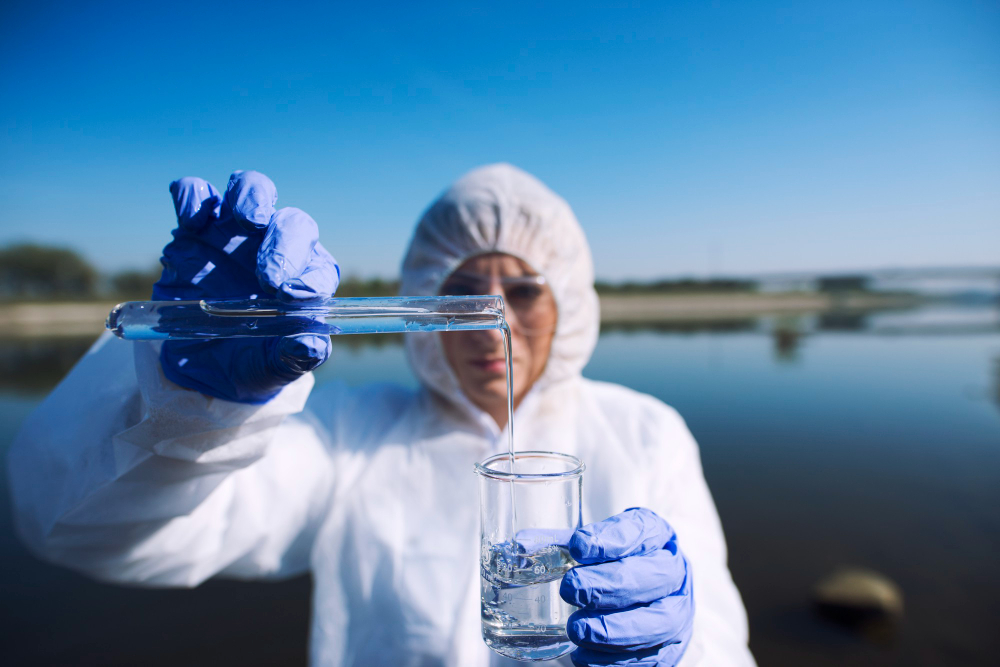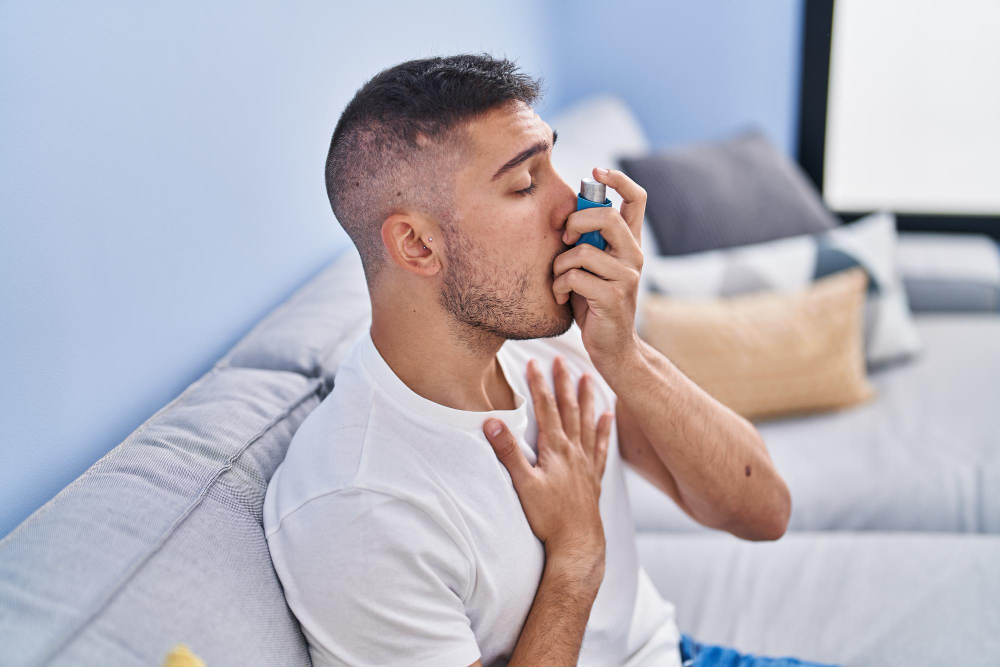Water pollution, a pervasive environmental issue of our time, is known to have far-reaching health consequences. In urban areas such as Springfield, Havertown, South Philadelphia, Conshohocken, and Swarthmore in Pennsylvania, residents may find themselves particularly vulnerable to the potential dangers of water pollution, experiencing allergies and respiratory ailments as a result. Comprehensive diagnosis and treatment for health issues related to water contamination are offered by Penn Medicine Becker ENT & Allergy in Philadelphia, allowing individuals with allergies to experience improved breathing. Their assistance ensures that people are better protected from the hidden risks associated with water pollution.

Statistics about Water Pollution and Allergies
- Polluted water can contain allergens that can trigger allergic reactions in people who are sensitive to them. These allergens can include mold, bacteria, and other microscopic organisms.
- A study by the University of Pittsburgh found that people who live in areas with high levels of water pollution are more likely to have allergies. The study also found that the severity of allergies was linked to the level of water pollution.
- Another study, conducted by the Pennsylvania Department of Environmental Protection, found that water pollution can increase the risk of developing asthma. The study found that children who live in areas with high levels of water pollution are more likely to develop asthma than children who live in areas with low levels of water pollution.
It is important to note that more research is needed to fully understand the link between water pollution and allergies. However, the available evidence suggests that polluted water can be a significant trigger for allergic reactions.
Here are some specific examples of how water pollution can cause allergies in Pennsylvania:
- Algae blooms: When algae grow too quickly in water, they can produce toxins that can trigger allergic reactions. These blooms are more common in warm, stagnant water, such as in lakes and ponds.
- Flooding: Floodwaters can carry pollutants such as mold, bacteria, and other allergens into people’s homes and businesses. This can trigger allergic reactions in people who are sensitive to these substances.
- Industrial pollution: Industrial pollutants can also enter water supplies and trigger allergic reactions. These pollutants can come from factories, power plants, and other industrial facilities.
If you are concerned about water pollution and allergies, there are a few things you can do:
- Learn about the water quality in your area. You can contact your local water utility to get information about the quality of your drinking water.
- Take steps to reduce your exposure to water pollution. This may include avoiding swimming in polluted water, washing your hands after coming into contact with polluted water, and using a filter to remove pollutants from your drinking water.
- See a doctor if you have allergies. Your doctor can help you identify the allergens that are triggering your allergies and develop a treatment plan.
The Impact of Water Pollution on Allergies
Water pollution plays a substantial role in the prevalence and severity of allergies. When water bodies become contaminated with pollutants, they can trigger and exacerbate allergic reactions in individuals. This connection stems from the fact that water serves as a medium for transporting various allergens, such as pollen, mold spores, and bacteria. As we consume or come into contact with polluted water, our immune system recognizes these allergens as threats and initiates an immune response, leading to allergic symptoms.
Common Allergens
Several common allergens contribute to the high allergy rates among residents. These include:
- Pollen: Pollen from trees, grasses, and weeds is a widespread allergen that can be carried by water, leading to runny nose, sneezing, and itchy eyes.
- Mold Spores: Mold thrives in damp environments, and polluted water provides an ideal breeding ground. Inhalation of mold spores can cause respiratory issues and allergic reactions.
- Bacteria: Contaminated water sources may harbor harmful bacteria, such as E. coli or Legionella. Ingestion or contact with these bacteria can result in severe allergic reactions.
Understanding Allergy Symptoms
Allergies manifest in various ways, and recognizing their symptoms is crucial for timely diagnosis and treatment. Common allergy symptoms include:
- Runny Nose: Allergies often cause a persistent runny nose, accompanied by nasal congestion and sneezing.
- Stuffy Nose: Nasal congestion due to allergies can lead to a stuffy nose, making breathing difficult.
- Itchy Skin: Skin reactions, such as itching, hives, or rashes, may occur as a result of exposure to allergens in polluted water.
- Shortness of Breath: For individuals with allergic asthma, exposure to certain allergens in water can trigger asthma attacks, causing difficulty in breathing.
- Loss of Consciousness: In severe cases, allergic reactions can lead to anaphylaxis, a life-threatening condition characterized by a sudden drop in blood pressure, dizziness, and loss of consciousness.

Medical Conditions Associated with Allergies
Allergies can have a significant impact on an individual’s overall health and quality of life. Some medical conditions associated with allergies include:
- Allergic Asthma: Individuals with allergies are at a higher risk of developing asthma, a chronic respiratory condition characterized by inflammation and narrowing of the airways. Exposure to allergens in polluted water can trigger asthma attacks.
- Allergic Contact Dermatitis: Contact with allergens in polluted water may cause skin irritation and allergic contact dermatitis, leading to redness, itching, and swelling.
- Food Allergies: Polluted water can contaminate food sources, increasing the risk of developing food allergies, which can result in digestive problems, skin reactions, or even anaphylaxis.
The Link Between Polluted Water and Allergies
The link between polluted water and allergies lies in the pollutants present in the water. Harmful substances, such as pesticides, heavy metals, and industrial waste, can contaminate water sources. When we consume or come into contact with this contaminated water, our bodies react, triggering allergic responses. Furthermore, the chemicals present in polluted water can sensitize our immune system, making us more susceptible to allergies.
Environmental Factors and Allergic Reactions
Risk Factors of Polluted Water
The Importance of Clean Water
The Role of Public Health in Combating Water Pollution
Environmental factors greatly influence the occurrence and severity of allergic reactions. Increased levels of pollution, including water pollution, contribute to higher allergy rates. Additionally, climate change can affect the distribution and abundance of allergens, leading to more frequent and intense allergic episodes. Understanding these environmental factors is crucial for effectively managing and mitigating allergic reactions caused by polluted water.
Several risk factors contribute to the presence of polluted water and the subsequent increase in allergies. These include:
- Human Activity: Improper waste disposal, industrial activities, and excessive use of pesticides and fertilizers can contaminate water sources, heightening the risk of allergies.
- Pollution of Rivers: Industrial and domestic wastewater discharge into rivers can introduce pollutants that affect water quality and pose health risks.
- Insect Venom: Water bodies contaminated with insect venom can lead to severe allergic reactions when individuals are stung or bitten.
Access to clean water is essential for maintaining good health and preventing allergies caused by polluted water. Regular testing of water sources and proper wastewater treatment are crucial steps in ensuring clean water for communities. Implementing effective water management strategies, promoting sustainable practices, and raising awareness about the impact of water pollution can contribute to a healthier and allergy-free environment.
Public health plays a vital role in addressing the issue of water pollution and its effects on allergies. Through comprehensive monitoring programs, public health authorities can identify and mitigate sources of pollution. Public education campaigns can raise awareness about the importance of clean water and provide information on how individuals can protect themselves from allergic reactions caused by polluted water. Furthermore, healthcare professionals can offer medical care and allergy testing to diagnose and treat allergies effectively, improving the quality of life for affected individuals.
Frequently Asked Questions (FAQs)
Conclusion
Water pollution extends beyond its impact on the environment, as it can have hidden implications for our health, particularly in relation to allergies. In Pennsylvania, instances of polluted water have been observed to contribute to the frequency and intensity of allergic reactions experienced by local residents. Gaining a comprehensive understanding of the connection between water pollution and allergies is vital in identifying risk factors, prevalent allergens, and associated symptoms related to contaminated water. By fostering clean water practices, increasing awareness, and implementing effective public health measures, we can actively strive for a healthier future with minimized instances of water pollution-induced allergies.

